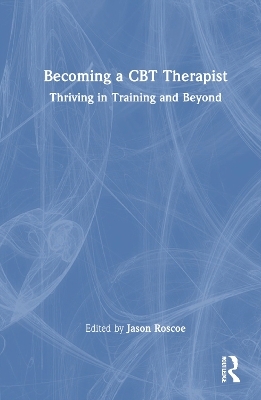
Becoming a CBT Therapist
Routledge (Verlag)
978-1-032-55006-0 (ISBN)
- Noch nicht erschienen (ca. März 2025)
- Versandkostenfrei
- Auch auf Rechnung
- Artikel merken
Featuring contributions from experienced CBT tutors, supervisors and practicing therapists, this book is the first to detail the practical, emotional, and psychological challenges of embarking upon and sustaining a career in this field. From adjustment to learning new skills, to the role transition from their existing role and identity, through to the practicalities of how to demonstrate competence during their training, the book covers an array of topics which are a must read for aspiring CBT Therapists. Chapters offer practical advice for developing a range of key skills, such as how to succeed at interviews, maintain a work-study-life balance, and deal with imposter syndrome.
Packed full of vignettes and reflective exercises, this book is a must read for those looking to apply for CBT training, currently undertaking training, or involved in supporting trainees through the various challenges they will encounter.
Jason Roscoe is Course Director for the CBT training programmes at Bangor University. He has previously worked as a Senior Lecturer in CBT at the University of Cumbria, as a Course accreditation Manager for BABCP and published research on CBT training and supervision. He also operates a small private practice.
Introduction Part 1: Making the Switch 1. What is a CBT Therapist? 2. Pathways to Becoming a Cognitive Behavioural Therapist 3. Charting your Path: Navigating the Journey to Becoming a CBT Therapist Across the UK 4. Maximising your Chances at Interview 5. Leaving behind your ‘Previous Professional Self’ – The Challenges of Role Transition 6. Am I Well Suited to the Role? Understanding Some of the Factors that Influence our ‘Alignment’ with CBT 7. Managing as a Trainee with Lived Experience of Mental Health Difficulties Part 2: Acquiring & Consolidating your CBT Knowledge and Skills 8. How to Thrive During Training: A Tutor’s Perspective 9. Making the Most of Supervision 10. Maximising the Training Experience through Shadowing and ‘In vivo’ Work 11. Developing Essential Competencies in Culturally Inclusive Practice 12. Embedding Inclusive Principles within your CBT Practice: Working with Autism, Gender Identity and Sexual Orientation 13. Being an Effective CBT Therapist: What our Clients Need From Us 14. First-hand Accounts of Making it Through Training 15. A Week in the Life of a Qualified CBT Therapist Part 3: Fine Tuning and Expanding Your Knowledge and Skills 16. Get out of your Head and into the Chair: Bringing CBT to Life through Chairwork 17. “It’s not You, it’s Me”: Addressing Therapist Schemas During CBT Training and Beyond 18. How can we Help Others if we Cannot Help Ourselves? The Importance of Self-Practice and Self-Reflection within CBT Training 19. Keeping the Shore in Sight – How to be Flexible in your Practice whilst Retaining the Core Principles of CBT 20. Working in Specialist Services 21. Training in Third Wave and Integrative Approaches 22. Supervising other CBT Practitioners 23. Venturing into Private Practice 24. From Surviving to Thriving: Going the Distance as a CBT Therapist Afterword
| Erscheint lt. Verlag | 28.3.2025 |
|---|---|
| Zusatzinfo | 11 Tables, black and white; 14 Line drawings, black and white; 14 Illustrations, black and white |
| Verlagsort | London |
| Sprache | englisch |
| Maße | 156 x 234 mm |
| Themenwelt | Medizin / Pharmazie ► Medizinische Fachgebiete ► Psychiatrie / Psychotherapie |
| Sozialwissenschaften ► Soziologie | |
| ISBN-10 | 1-032-55006-6 / 1032550066 |
| ISBN-13 | 978-1-032-55006-0 / 9781032550060 |
| Zustand | Neuware |
| Haben Sie eine Frage zum Produkt? |
aus dem Bereich


